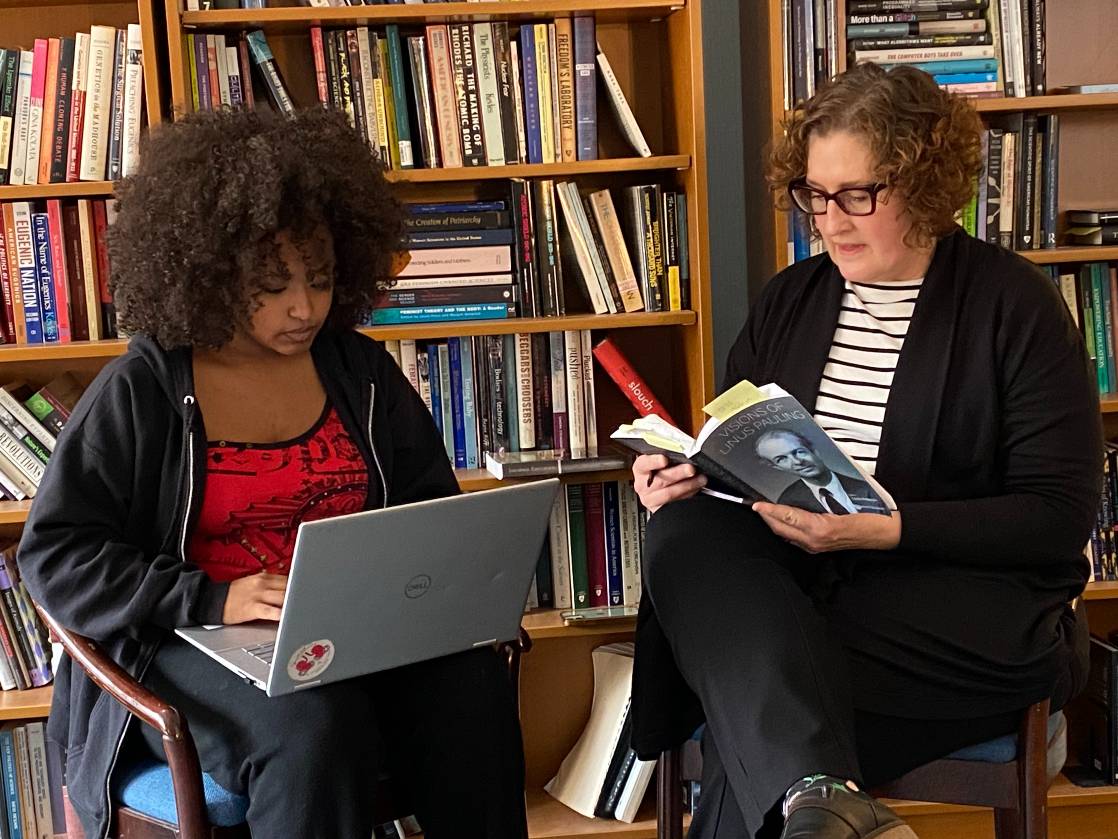Science for Grown-ups: How VCU Researchers Study Informal Adult Science Education
Nov. 18, 2025

As an undergraduate biology student at Loyola University, Karen Rader, Ph.D., was already passionate about the history of science.
During the writing of her second book – "Life on Display," co-authored with Victoria Cain – Rader became interested in science education by researching how museums increasingly took on educational missions throughout the twentieth century.
Rader quickly found a glaring flaw in the history of science education, however – the lack of emphasis for adult learners.
“My question was always, ‘wait, where are the adults in all of this? We’re doing this too.’”
Rader began her years-long journey of science education research, focused on the structures of social, cultural, and intellectual institutions.
Now at VCU, Rader has researched the historical perspectives of science education, especially since the end of World War II. The war finalized a cultural shift from science being incorporated into daily life to becoming a specialized field of research.
“My research seeks to understand this history more fully, to illuminate how current adult science education reflects an important and on-going post-war negotiation over the cultural identities and spaces of science learners.”
Heldana Fufa, a history student at VCU, has been working in tandem with Rader as a research assistant by assessing various materials related to the history of informal scientific education.
“I love being a research assistant. I have to summarize it in a way that can be taken into consideration for a larger piece of work. It is so valuable to have my work being guided by a mentor as well as having that mentor trust me with certain things,” stated Fufa.
Fufa has worked on reviewing articles and scholarly works to support Rader’s research project. Having to edit, rearrange, and remove information has been a daunting process in compiling scholarly works.
“You have to realize which of the hundreds and thousands of works that you have is going to be relatable to the book that you're going to write. So, there's so many things that you have to cut out,” stated Fufa.
Inclusivity plays a huge role in the research of educational development in the sciences. Harboring spaces for lifelong learning in STEM research has been a priority for Rader and Fufa.
“By introducing humanities-centered perspectives in contemporary adult informal STEM learning spaces (such as science cafes), I am also developing some forward-looking insights about how to create more complex and inclusive spaces for negotiating the meaning of science in everyday life,” stated Rader.
Learn more about Professor Karen Rader's work in the Q&A below
How has science education evolved over the past century?
I think World War II is the inflection point where scientists, essentially, as a country, decided that it was important for us not just to do science and learn science, but to become scientists…. And I'm interested in that inflection point. I'm interested in the way in which crises create new demands around science education, and so I think we're still living with the legacy of that. Because I think this idea that science, doing science means becoming a scientist, has created this idea of the pipeline problem, that at some point you get tracked on a science path and you might fall off, and somebody else who's more successful goes on. And I'm really interested in what happens to the people that fall off, because most of the people that I know who fall off, there's a lot of them that are still interested in science and technology and still ask scientific questions. So, as a historian, I'm interested in how to narrate that, and also how to use that as a way to understand the ways in which our STEM education system now is leaving some people out, in particular, adult learners.
How do you plan on harboring a more inclusive environment within science education?
The way that I think about inclusion is making science education, education about the natural and technological world, something in which all people feel included, respected, valued. So I think the first project is to get rid of this "non-traditional student" designation and just think about learning as a lifelong project.
Why do you think it is important to study the history of scientific education?
In my experience, I think that science education is a long process in school where you learn a set of facts and you have to be able to recite them back. Science education is not just a body of knowledge, instead, it's a process of asking questions. It can be a learning process. I think it's also a deeply historical process.